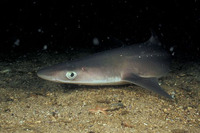|
| Query: White shark | Result: 166th of 240 | |
Squalus acanthias, Piked dogfish: fisheries, gamefish

| Resolution: 640x425
File Size: 58967 Bytes
Upload Date: 2008:04:15 14:08:08
|
Squalus acanthias, Piked dogfish: fisheries, gamefish
Image of Squalus acanthias, Piked dogfish, Doringhaai, Spikkel-penhaai, Peshkagen, Kelb el bahr, Wâwy, Abushoka, Kalb bouchouika, Kelb bahr, Abou shoka, Akula, Chernomorska akula, Kuceska akula, Morsko kuce, Agullat, Košcak, Kostelj, Kostilj, Kucin, Pas kostelj, Pena, Žralok ostroun obecný, Almindelig pighaj, Pighaj, Doornhaai, Spiny dogfish, Spotted spiny dogfish, Spurdog, Victorian spotted dogfish, White-spotted dogfish, White-spotted spurdog, Pacific dogfish, Dogfish, Grayfish, Spiny Dogfish, Spur dogfish, Southern spiny dogfish, Spiky dog, Blue dog, Common spiny fish, Darwen salmon, Picked dogfish, Rock salmon, Spring dogfish, Spotted spiny dogfish, Haúr, Hávur , Piikkihai, Aiguillat commun, Aiguillat commun, Aiguillat tacheté, Aiguillat, An fiogach gobach, Dornfisch, Dornhai, Gefleckter Dornhai, Gemeiner Dornhai, Grundhai, Kentroni, Skyllos, Skylópsaro, Stictokentroni, Eqalussuaq kukilik, K
Salesjö, A.
AquaMaps
Point map
Order:
Squaliformes
(bramble, sleeper and dogfish sharks)
Class:
Elasmobranchii (sharks and rays)
FishBase name:
|
^o^
Animal Pictures Archive for smart phones
^o^
|
|